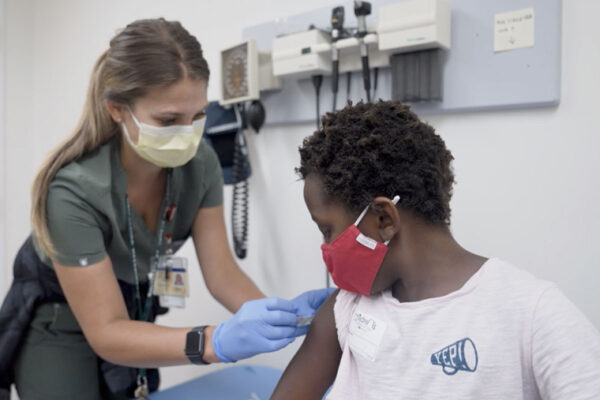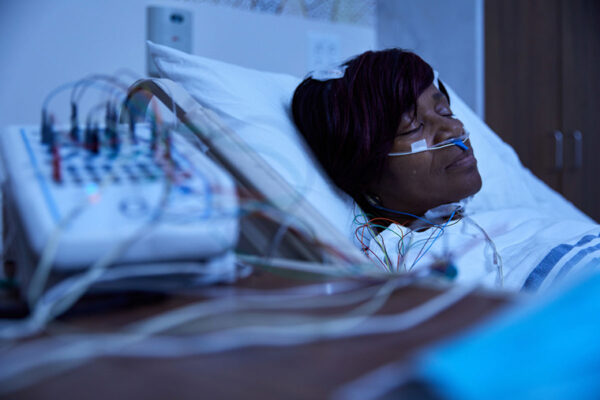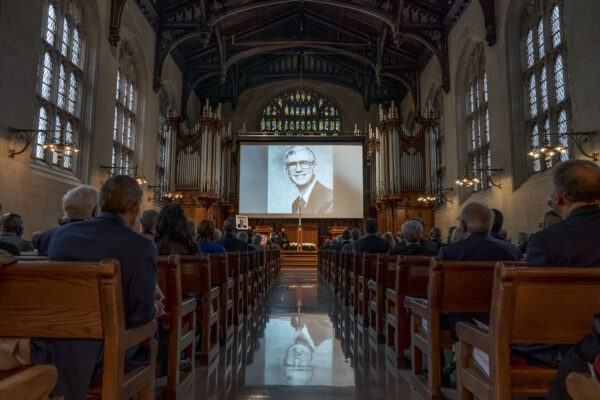Pediatric COVID-19 vaccine trial underway
A pediatric COVID-19 vaccine clinical trial is underway in St. Louis. Led by Washington University School of Medicine, about 140 area children will receive the two-shot Moderna vaccine or a placebo at St. Louis Children’s Hospital as part of a clinical trial involving about 100 medical institutions in the U.S. and Canada.
Facebook controversy raises ethical questions for corporations
By bringing to light the consequences of Facebook’s algorithms, whistleblower Frances Haugen’s testimony has forced corporations to rethink their relationship with Facebook and use of consumer data, according to digital media experts at Olin Business School.
New catalyst helps combine fuel cell, battery into one device
A team in the lab of Vijay Ramani at the McKelvey School of Engineering has developed a catalyst that can be used to both generate fuel and provide power.
Mokgosi named 2021-22 Freund Teaching Fellow
Internationally renowned painter Meleko Mokgosi, who uses the scale and tropes of cinema and history painting to explore questions of class, ethnicity and gender roles, will serve as the 2021-22 Henry L. and Natalie E. Freund Teaching Fellow.
$35 million to support study of sleep disorder linked to neurodegeneration
Researchers at Washington University School of Medicine, the Mayo Clinic in Rochester, Minn., and The Neuro of McGill University have received a five-year grant expected to total $35.1 million for an extension of a study designed to develop biomarkers that indicate which people with REM sleep behavior disorder will go on to develop neurodegenerative diseases.
NIH awards 4 medical school scientists prestigious ‘high-risk, high-reward’ grants
Four researchers at Washington University School of Medicine have been awarded “high-risk, high-reward” grants from the National Institutes of Health (NIH). The grant program aims to inspire scientific discovery by providing support for highly innovative research. The grant recipients are (from left) Linda J. Richards; Brian J. Laidlaw, Anthony W. Orvedahl and Leonid Shmuylovich.
University, region gather to honor Danforth
The Washington University community gathered at Graham Chapel Oct. 2 to honor the legacy of Chancellor Emeritus William H. Danforth, MD, a leader who transformed the university, the region and the lives of countless students, patients, faculty and civic leaders.
How the expanded child tax credit is helping families
American households making less than $50,000 are more likely than higher-earning families to spend the expanded child tax credit on essential expenses and tutors for their children, found a survey from the Social Policy Institute at Washington University.
Washington University makes historic $1 billion investment in financial aid, adopts need-blind undergraduate admissions policy
Washington University in St. Louis will make an unprecedented $1 billion investment in financial aid for students, according to Chancellor Andrew D. Martin. This funding will allow the university to achieve its goal of adopting a need-blind undergraduate admissions policy, effective immediately.
WashU Expert: A more inclusive Bond?
“Women of color, Black and Asian women in particular, have rarely been treated with dignity or nuance in the Bond series,” writes film scholar Colin Burnett. Whether that changes, with the Oct. 8 release of “No Time to Die,” the 25th Bond installment from Eon Productions, remains to be seen. But the films’ poor collective record belies how “writers in other official Bond media, especially comics and novels, have been tipping the gender and racial imbalance for some time.”
View More Stories









